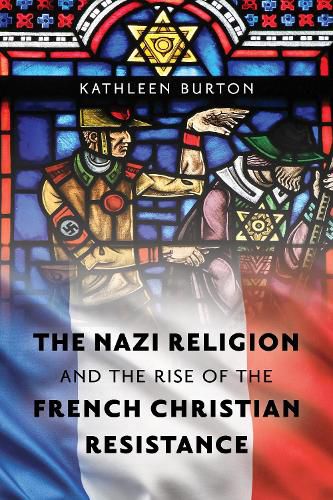Readings Newsletter
Become a Readings Member to make your shopping experience even easier.
Sign in or sign up for free!
You’re not far away from qualifying for FREE standard shipping within Australia
You’ve qualified for FREE standard shipping within Australia
The cart is loading…






If asked to define Nazism, most people think of fascism, racism, antisemitism, and the use of propaganda. Few people know that Nazism also included a strong religious component. Yet it did.
The Nazi religion was termed Positive Christianity, and it is directly cited in Hitler’s Nazi Party Platform of 1920. But what was Positive Christianity? In this book, Kathleen Burton details when and where this religion was embraced; how it was received and critiqued by the prominent theologians of the 1930s; and how a combined effort of rogue Catholic priests and Protestant pastors in France, aware of the religious threat, worked together to fight Nazism during World War II. This contributed to the survival of seventy-five percent of France’s Jewish population. Burton concludes by describing what work still needs to be done to fully understand, clarify, and debunk Nazism’s Positive Christianity. Today’s world is fascinated by the tragic events of World War II, yet Hitler’s propaganda coup against traditional Christianity is not well-known or understood. This book closes that gap.
$9.00 standard shipping within Australia
FREE standard shipping within Australia for orders over $100.00
Express & International shipping calculated at checkout
If asked to define Nazism, most people think of fascism, racism, antisemitism, and the use of propaganda. Few people know that Nazism also included a strong religious component. Yet it did.
The Nazi religion was termed Positive Christianity, and it is directly cited in Hitler’s Nazi Party Platform of 1920. But what was Positive Christianity? In this book, Kathleen Burton details when and where this religion was embraced; how it was received and critiqued by the prominent theologians of the 1930s; and how a combined effort of rogue Catholic priests and Protestant pastors in France, aware of the religious threat, worked together to fight Nazism during World War II. This contributed to the survival of seventy-five percent of France’s Jewish population. Burton concludes by describing what work still needs to be done to fully understand, clarify, and debunk Nazism’s Positive Christianity. Today’s world is fascinated by the tragic events of World War II, yet Hitler’s propaganda coup against traditional Christianity is not well-known or understood. This book closes that gap.